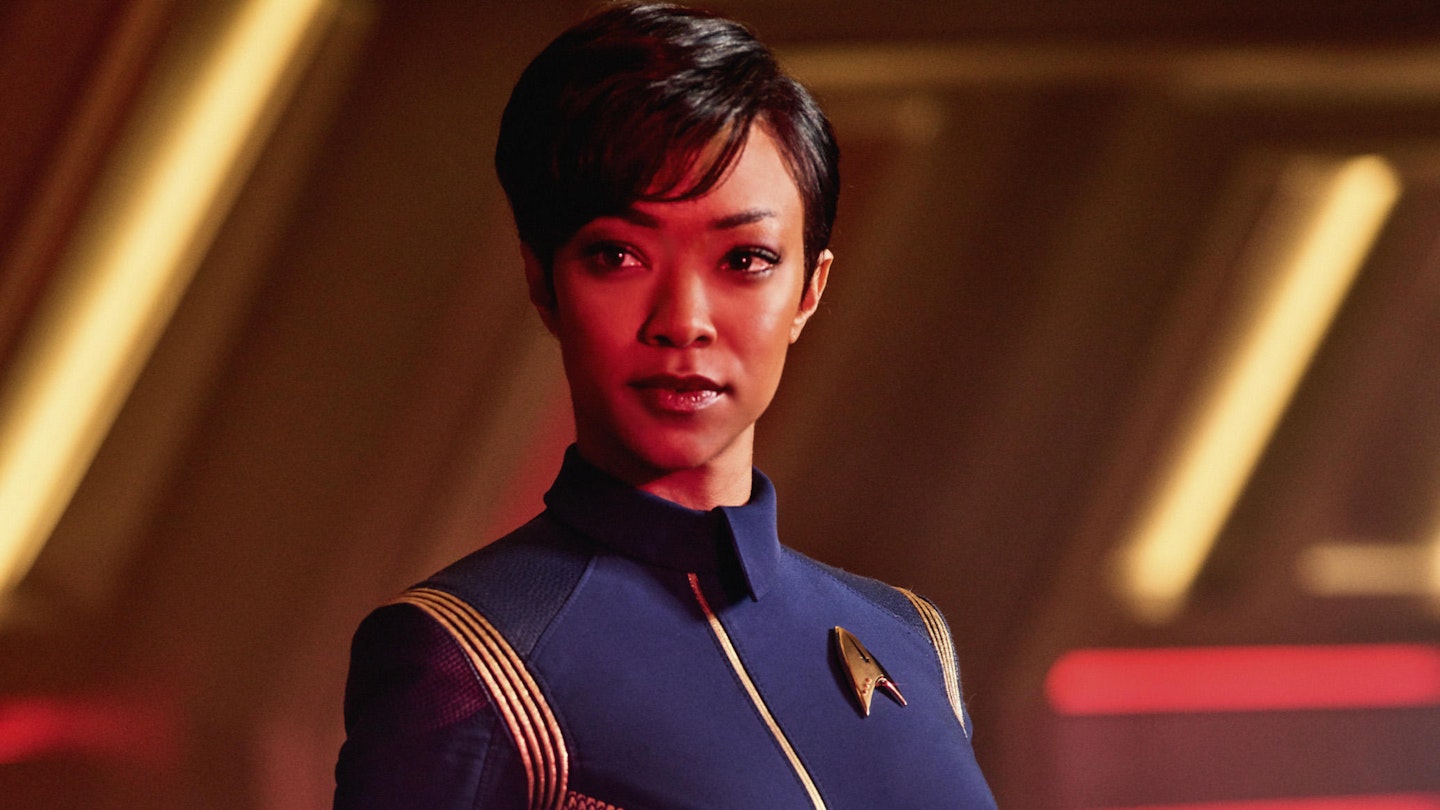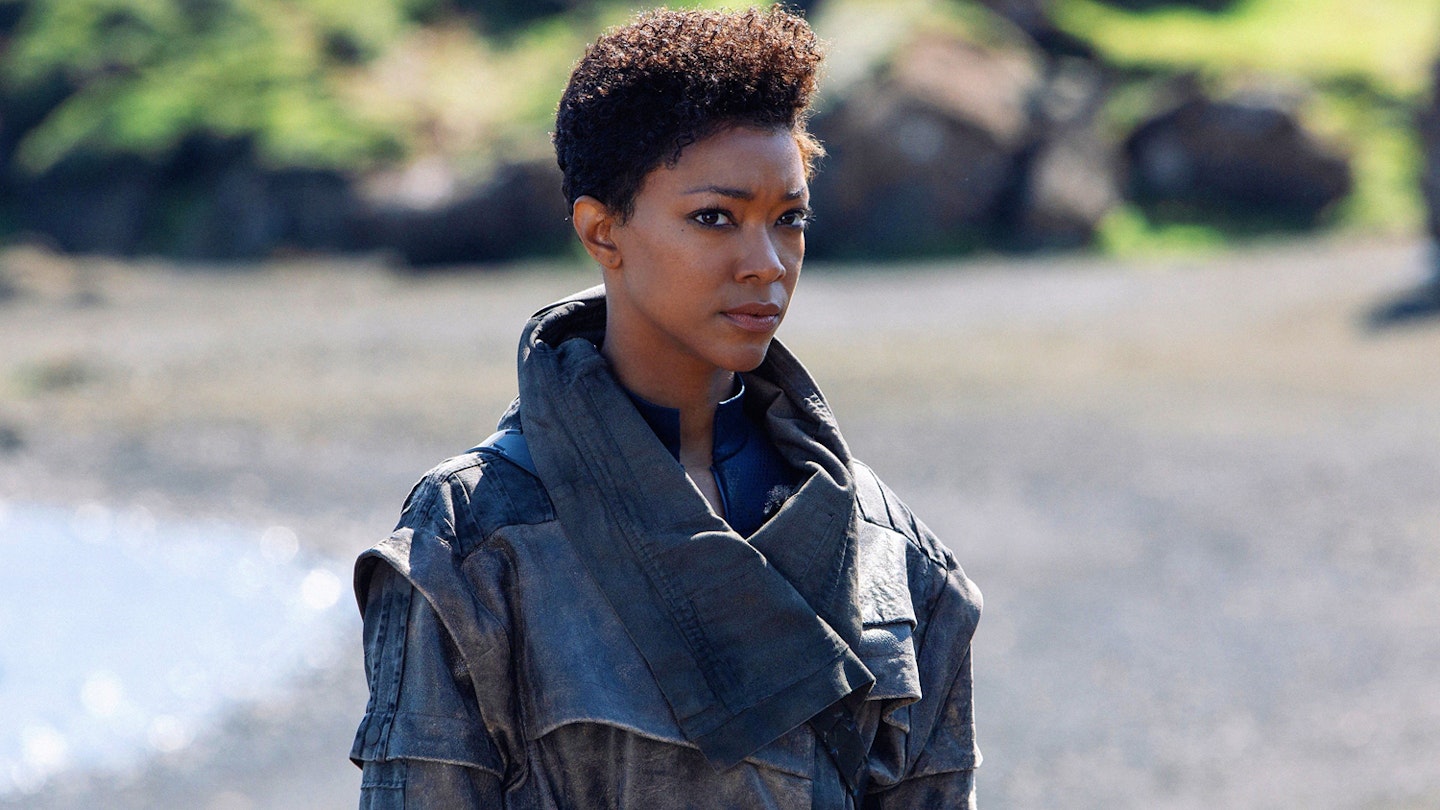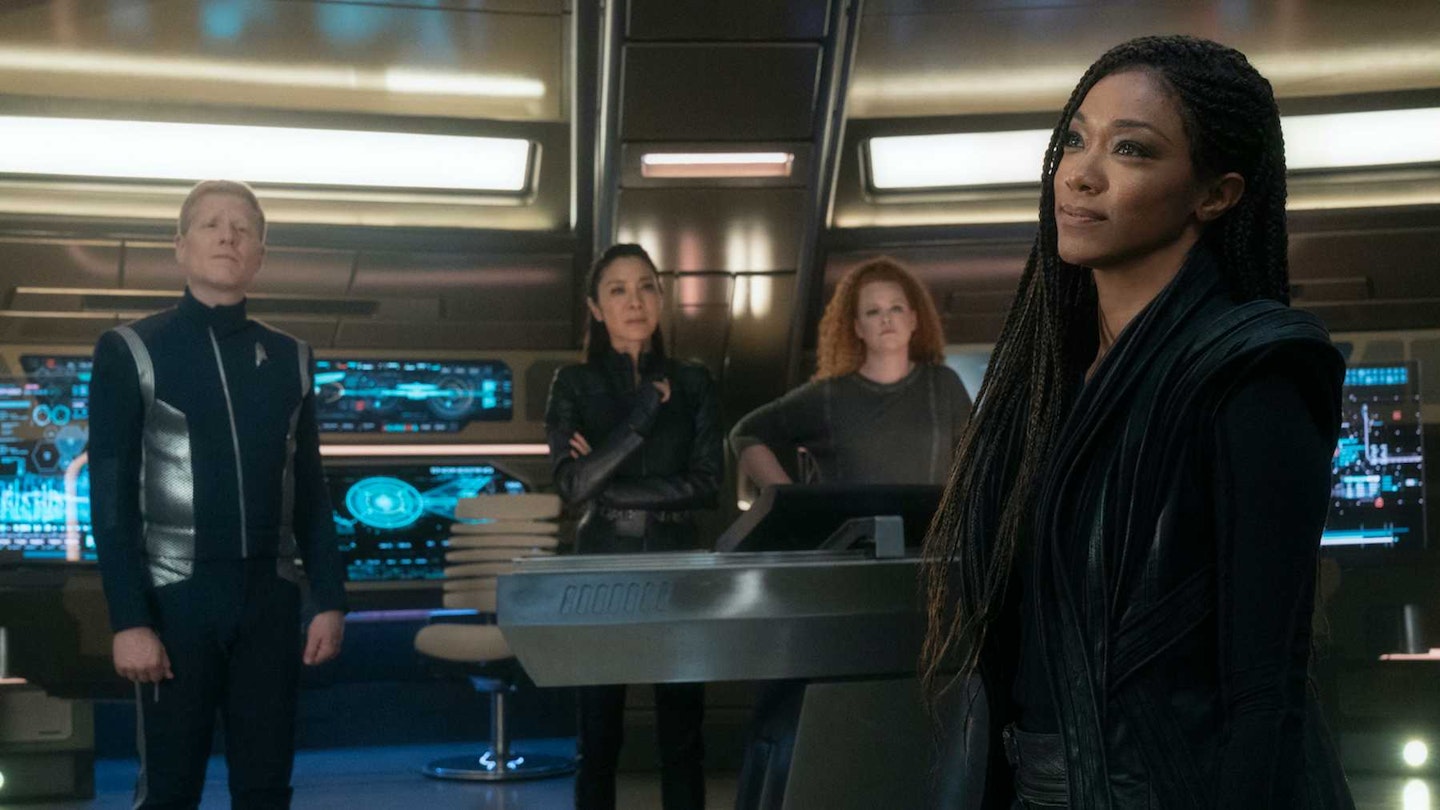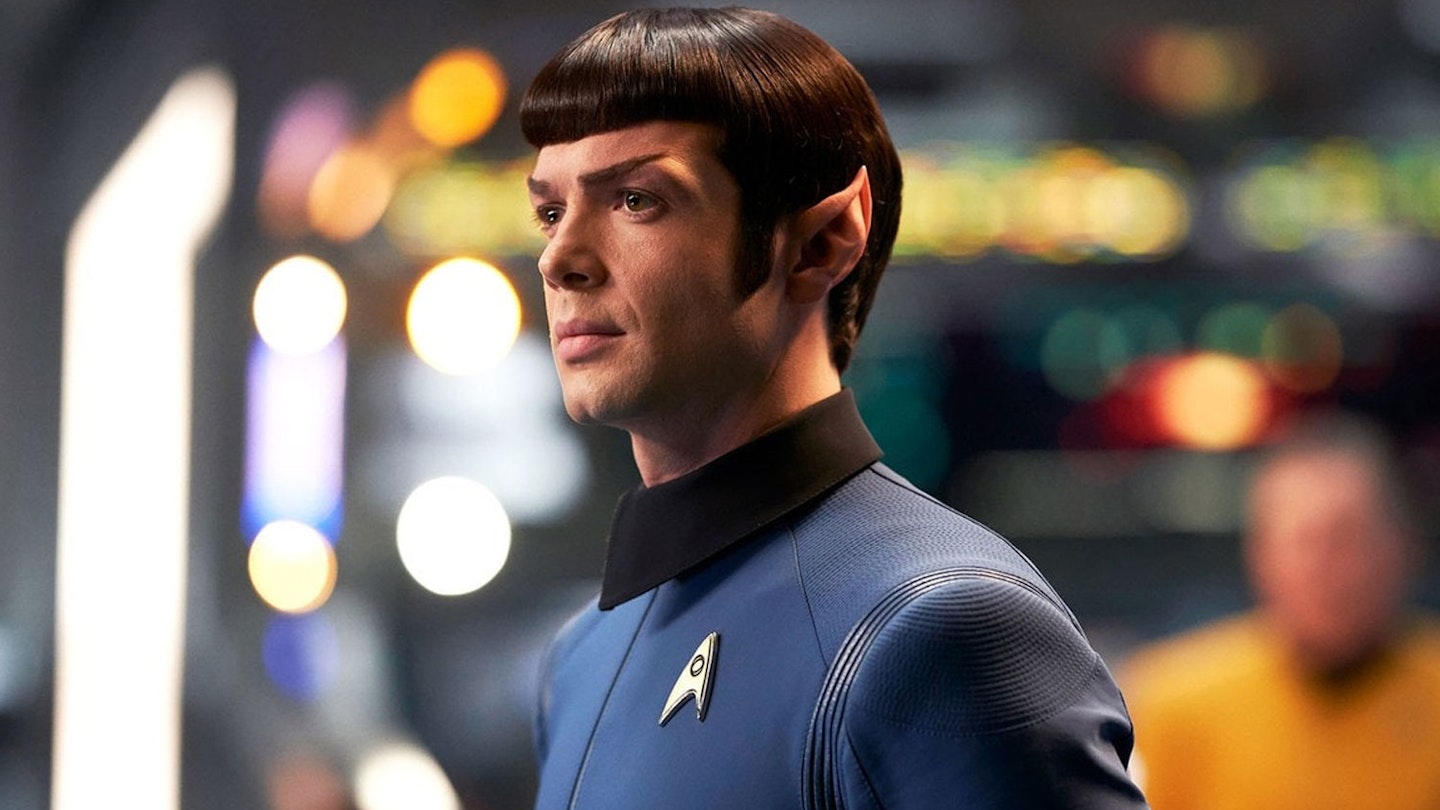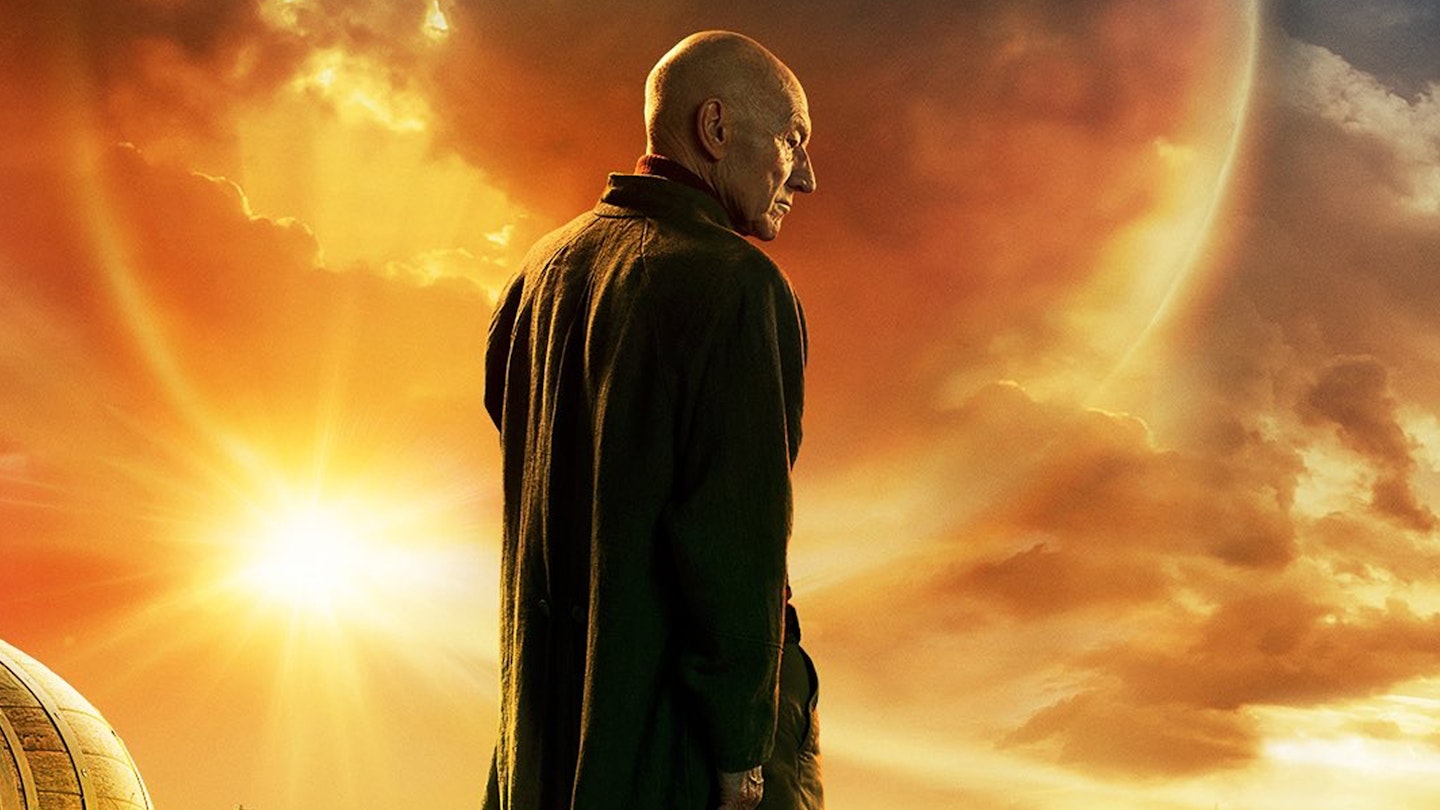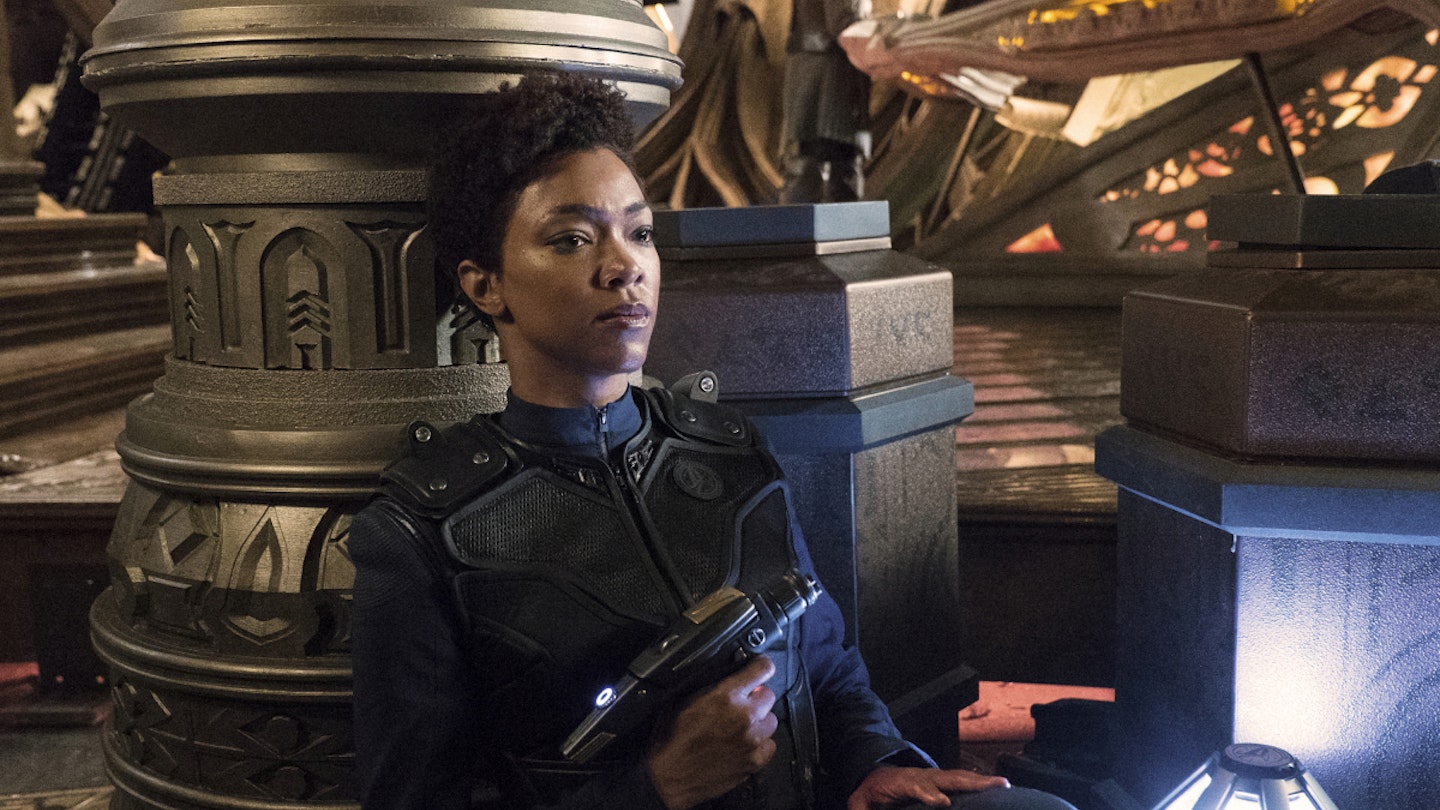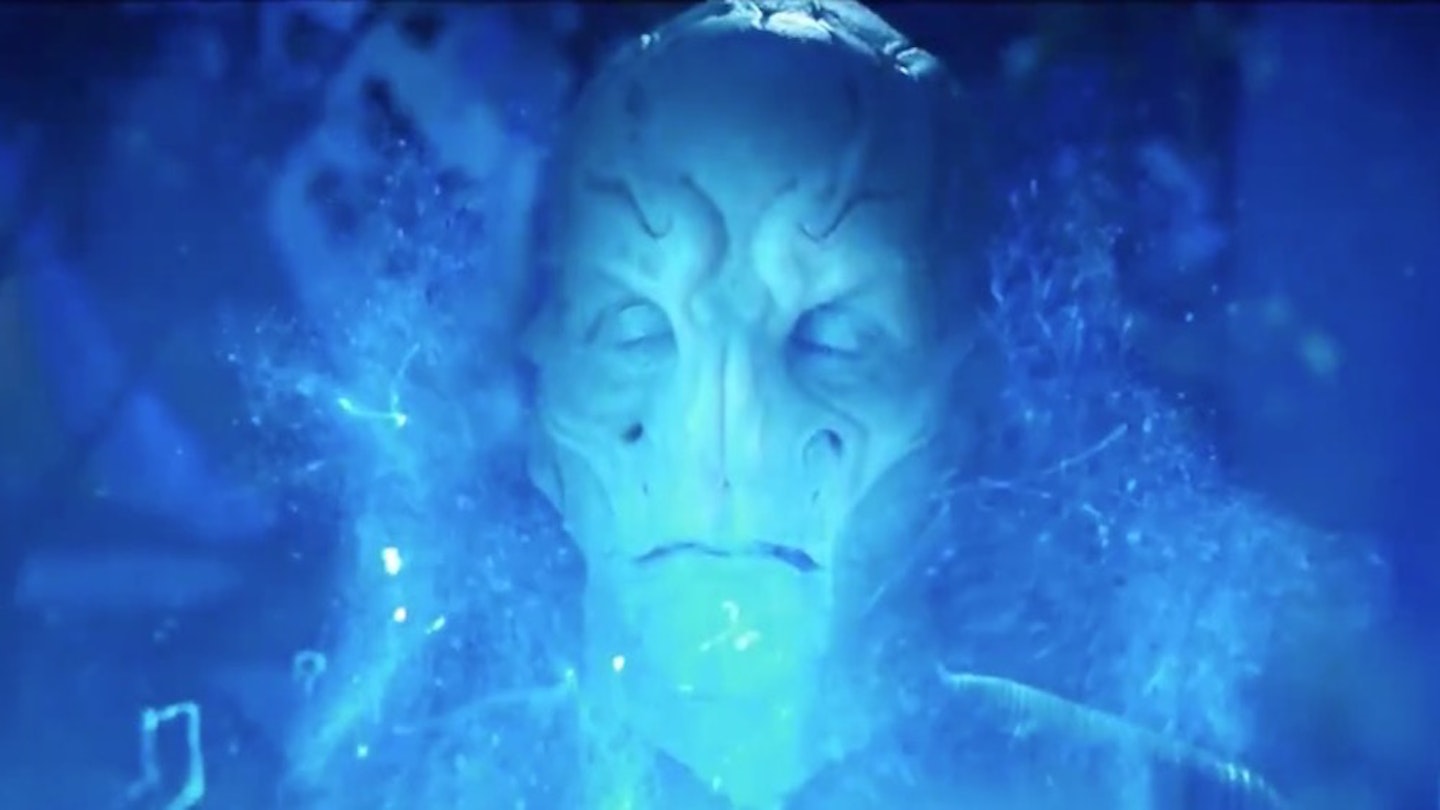Spoilers are coming toward you at warp speed, so you'd better have deflectors on full
Cast: Shonequa Martin-Green (Lt. Commander Michael Burnham); Doug Jones (Lt. Saru), Shazad Latif (Lt. Ash Tyler), Anthony Rapp (Lt. Stamets), Mary Wiseman (Cadet Sylvia Tilly), Jason Isaacs (Captain Gabriel Lorca), Terry Serpico (Anderson), Maulik Pancholy (Nambue), Sam Vartholmeos (Danby Connor), James Frain (Sarek), Kenneth Mitchell (Kol); Teleplay by Gretchen J. Berg and Aaron Harberts, Story by Bryan Fuller; Directed by Adam Kane
Picking up where the first episode left off with the Klingons surrounding the Shenzhou, we then go into a flashback, showing Sarek dropping Burnham (his “ward”) off on the starship and introducing her to Captain Georgiou before departing. What’s interesting here is to see how well Martin has Burnham carry herself as more Vulcan than human, walking stiffly, and speaking with an economy of words as she takes in the bridge. It's an interesting moment, showcasing what life among Vulcans has taught her, though the flashback immediately defuses the tension of the preceding scene.
Burnham counts the number of Klingon ships and realises it’s 24, the same number of Klingon houses in the Empire, leading her to conclude that someone is trying to unite Klingon factions, which could be dangerous. Not surprisingly, Captain Georgiou will hear none of it and has Burnham placed in the brig for her crime of mutiny in the previous episode.
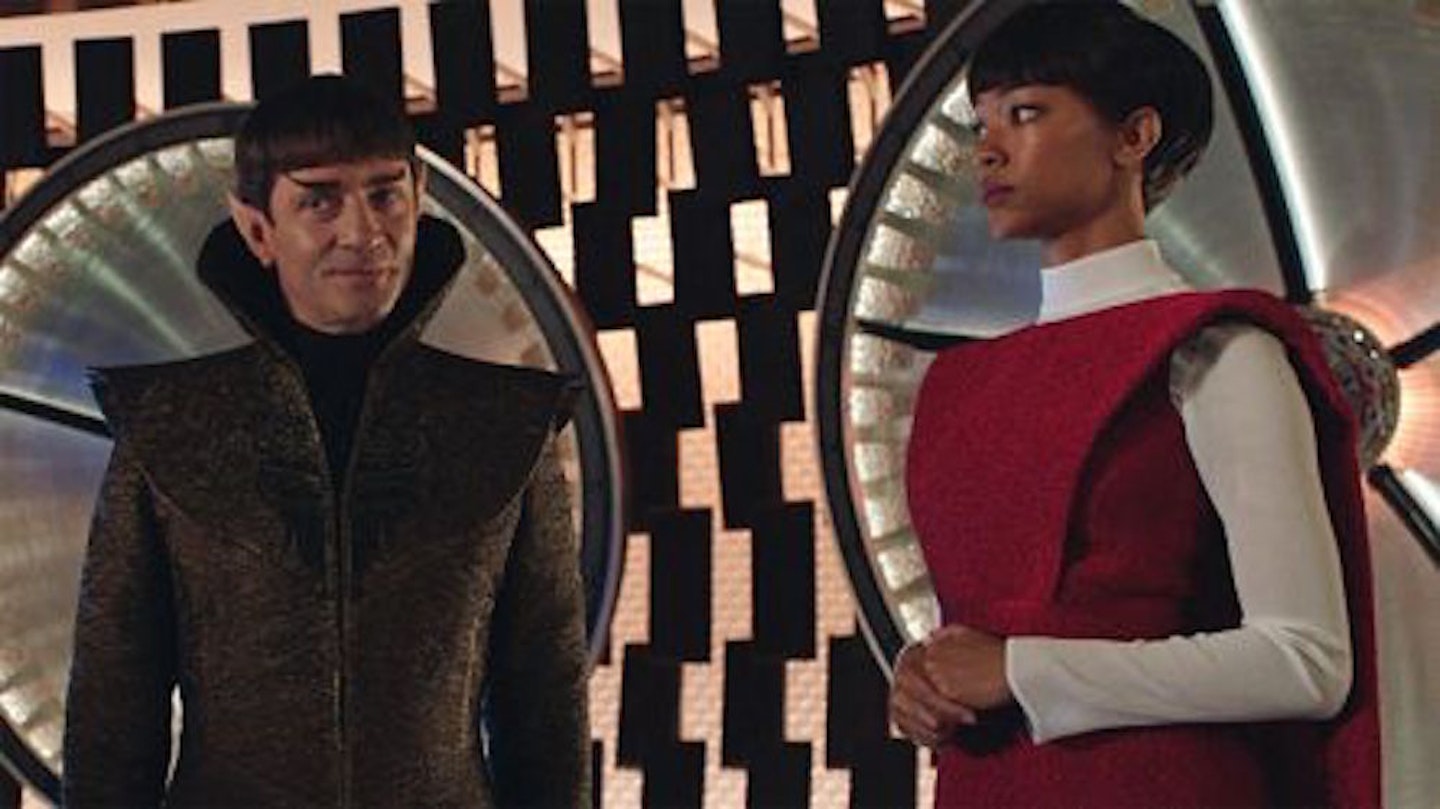
Things shift over to the Klingons, where T’Kuvma is speaking to his people before we go into another flashback, this one illuminating why he feels as strongly as he does about uniting the houses. Flashback over, the other Klingons don’t see the Federation as much of a threat, until a wide variety of starships arrive on the scene. The Klingons open fire on the Federation ships and Burnham is knocked out, leading to a great moment after she awakens (following another flashback) to find her cell in the brig is largely surrounded by open space (the only reason she’s alive being the force field around her), as much of the Shenzhou has been destroyed. Then Sarek pays a visit to her mind to basically give her a pep talk.
The Shenzhou is drifting, barely functioning. The admiral we met in episode one saves them with a tractor beam. He opens a communication channel with the Klingons, foolishly believing they will peacefully meet them during a ceasefire — and is promptly destroyed. Burnham manages to escape her cell, and convinces Georgiou that their only hope is to capture T’Kuvma and hold him so that they can sue for peace — if they kill him instead, he will become a martyr to the rest of his people. Sneaking a photon torpedo aboard the enemy’s vessel at the same time the Klingons are beaming aboard the bodies of their dead (thus disabling it) the two make their way aboard and attempt to capture him. Things go south in a hurry, resulting in both T’Kuvma and Georgiou being killed. At episode’s end, the Klingons seem more united than ever, while Burnham is stripped of her rank and sentenced to life in prison.
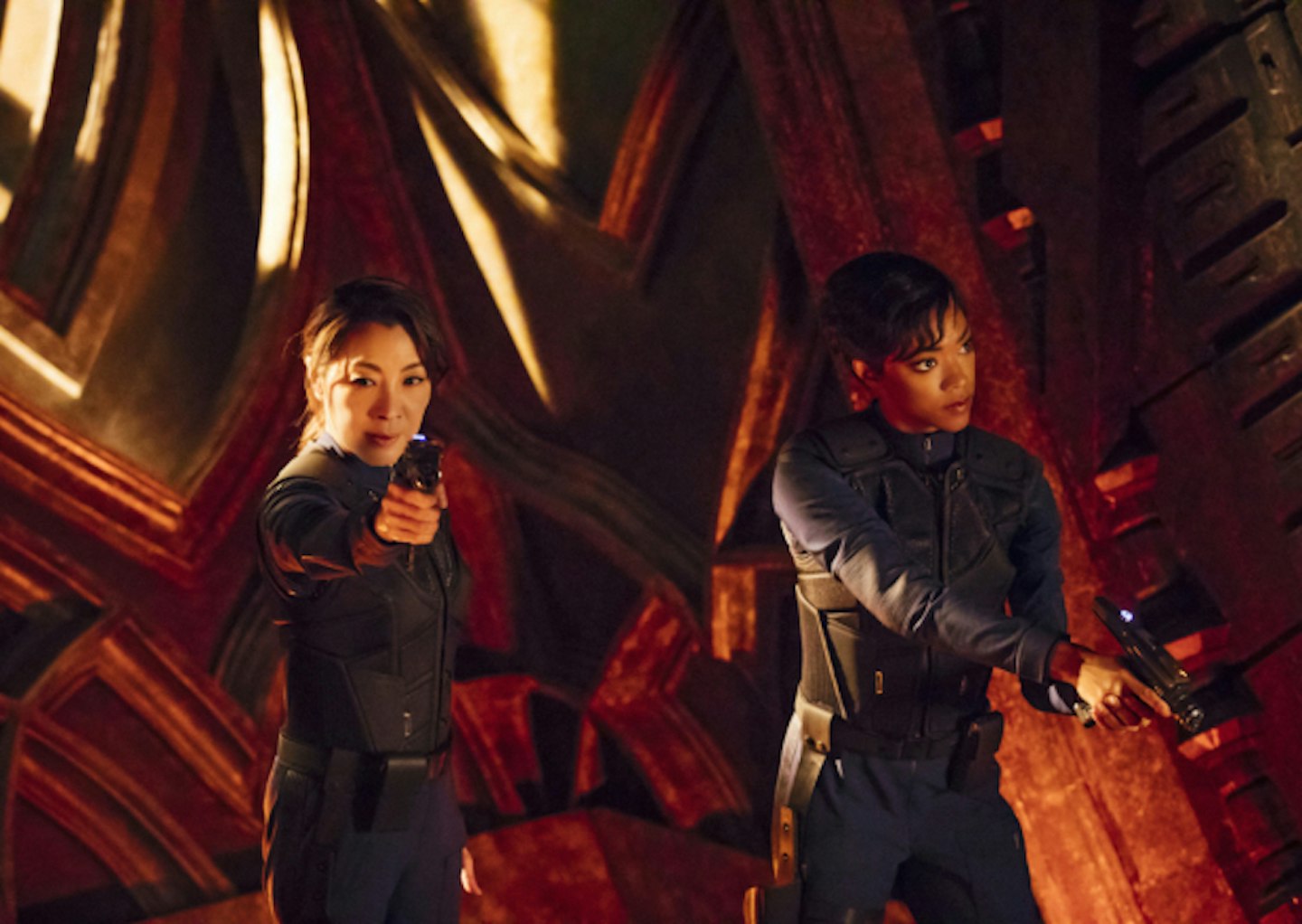
This second episode clocks in three minutes shorter than the first at just over 40 minutes, which feels a little ridiculous — particularly considering that people are paying for this streaming service and it makes no sense for the episodes to be rushed. That being said, what does work is that it shows the Federation and the Klingons teetering on the edge of war, and, given our own precarious situation these days, particularly with growing tensions between the US and North Korea, it strikes a very close to home. But that’s not a bad thing; it’s what Star Trek is supposed to do: take modern society and put it through the prism of the genre. Of course, where a show like Battlestar Galactica could really get down into the dark, gritty and unrelenting nature of war, Trek was designed to shoot higher. To encapsulate hope within the darkness and allow the human spirit to soar. It’s still not clear whether or not Discovery is going to be able to achieve that lofty ideal.
